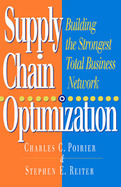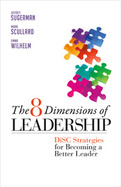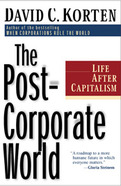Supply Chain Optimization illustrates how companies that create, distribute, and sell products or services can join forces to establish a supply network with an unbeatable competitive advantage. Poirier and Reiter explain how companies can successfully employ partnering, rather than working on improvements in isolation, to identify high opportunity initiatives across a total supply network. By applying key resources on focused opportunities and sharing the resulting savings, members of the network get larger results, faster, as well as funding for future efforts.
At the heart of Poirier's and Reiter's plan is a four-step model to mobilize joint effort and focus resources from suppliers, manufacturers, distributors, and retailers on initiatives that have a high pay-back potential. The authors have studied the successes of such influential retailers as Wal-Mart, K-Mart, Target, and Sears, all of which are laying the groundwork for how to use point-of-sale data to create quick-response alliances with selected suppliers who will take responsibility for replenishing stock to predetermined levels. Supply Chain Optimization explains how to develop such effective partnering techniques and demystifies the electronic data linkages that are necessary to make them work.
Supply Chain Optimization offers survival tools for companies of all sizes. The authors describe consortiums, or "share groups," of smaller companies that can compete with the volume leverage of large corporations, superstores, and warehouse stores. By analyzing their shared supply chain and pooling their available resources, these consortiums can find hidden savings to protect their profit margins and remain competitive in today's marketplace.
The book includes case studies that show what a wide range of companies are actually doing to achieve supply chain optimization. Companies profiled include: Financing Division of General Electric, Dial Corporation, Proctor & Gamble, Baxter Healthcare Corporation, Navistar/Goodyear, Packaging Corporation of America, Dominick's, Hart Mountain Corporation, and General Motors--Saturn.
Partnering requires more than technological expertise. Successful partnerships display high levels of cooperation expressed by the sharing of resources, time, energy, and the benefits achieved. Poirier and Reiter describe the many pitfalls that must be avoided, and create a vision of how firms can build on their existing supply initiatives to gain a greater competitive advantage in today's business world.
- Helps manufacturers, service companies, suppliers, distributors, and retailers find the hidden partnership opportunities in the business relationships they already have
- Explains how true partnering techniques can generate enhancements across a total supply network resulting in savings for all members of the network, as well as funding for future improvements
- Includes action studies to show how the concepts have been implemented
The advice in this book is based on Brian Tracy's twenty-five years of research, teaching, and personal experience on the subject of self-made millionaires. Tracy himself used these ideas to rise from humble beginnings to become a millionaire. And Tracy has discovered that all successful people practice these 21 success secrets, whether they're consciously aware of it or not. In The 21 Success Secrets of Self-Made Millionaires Tracy not only identifies and defines each success secret, but also reveals its source and foundation, illustrates how it functions in the world, and shows how to apply it in life and work through specific steps and practical exercises that everyone can use.
Easy to read, easy to understand, and easy to apply, this book shows how anyone can cultivate the habits and behaviors that will enable them to achieve not just financial independence, but success in any area of life. Because, as Tracy writes, "The most important part of achieving great success is not the money. It is the kind of person you have to become to earn that money and hold onto it."
• By one of the world's most widely-known business speakers and author of the bestselling Maximum Achievement (over 250,000 copies sold)
• Provides a wealth of practical advice anyone can use to become a self-made millionaire
• Over 2 million people have heard Brian Tracy speak and more than 1.5 million have purchased his audio and video programs
-
Employs the latest version of the DiSC system--one of the most widely trusted personality assessments used in business today
-
Stengthens your leadership by both helping you understand your own style and showing what you can learn from other styles
-
Includes leadership assessments you can take online
- Click here for Press Release
Nobody is really prepared to be a leader, In fact, many leaders never even planned on becoming one--it was just the next logical step in their careers. That's why there are so many books on leadership. So why one more? Because too many books take too narrow a view. They tell you to focus on your particular strength, which is only a part of the story. What you really need is a broad perspective on all behaviors needed to be an effective leader.
The 8 Dimensions of Leadership offers both. Based on the recently developed third generation of the DiSC personality assessment--one of the oldest, most widely used, and most scientifically validated tools available--it identifies eight individual leadership styles. By taking a basic version of this assessment online, you can find out if you are a Pioneering, Energizing, Affirming, Inclusive, Humble, Deliberate, Resolute, or Commanding leader. The authors help you understand the psychological drivers, motivations, and "blind spot" characteristic of each style.
But no one style will take youy all the way. A Humble leader may have a hard time making tough decisions. A Commanding leader may run roughshod over people who could be allies. After another assessment to point out the specific areas you need to work on, the authors detail the lessons all leaders can learn from each style. You may always be essentially a Deliberate leader, but to succeed you need to know when you should be a little more Pioneering. This book shows you how to develop a truly multidimensional leadership approach.
After reading The 8 Dimensions of Leadership, you will be able to craft your own approach to leadership--exploring the strengths and challenges of all eight leadership styles--to become the leader you aspire to be.
Capitalism is a pathology that commonly afflicts market economies in the absence of vigilant public oversight. Since the economy internal to a corporation is a planned economy, the current consolidation of economic control under a handful of global corporations is a victory for central planning-not the market economy. The alternative to the new global capitalism is a global system of thriving, healthy market economies that function as extensions of healthy local ecosystems to meet the livelihood needs of people and communities.
Radical as such proposals may seem, they actually reflect processes that are steadily gaining momentum around the world. The Post-Corporate World provides a vision of what's needed and what's possible, as well as a detailed agenda for change. Korten shows that to have a just, sustainable and compassionate society, concentrated absentee ownership and footloose speculative capital as embodied in the global, for-profit public corporation must be eliminated in favor of enterprises based on patient, rooted, stakeholder ownership limited to those who have a stake in the firm as a worker, supplier, customer, or member of the community in which it is located.
Korten outlines numerous specific actions to free the creative powers of individuals and societies through the realization of real democracy, the local rooting of capital through stakeholder ownership, and a restructuring of the rules of commerce to create "mindful market" economies that combine market principles with a culture that nurtures social bonding and responsibility.
Like Korten's previous bestseller, When Corporations Rule the World, this provocative book is sure to stimulate national dialogue and debate and inspire a bevy of grassroots discussions and initiatives. The Post-Corporate World presents readers with a profound challenge and an empowering sense of hope.
• From the bestselling author of When Corporations Rule the World
• An extensively researched, powerfully argued, eye-opening critique of how today's corporate captialism is destroying the things of real value in the world-like cancer destroys life
• Portrays a hopeful future-alternatives to a corporate-dominated and money-ruled world-in showing how to resore health to markets, democracy, and every day life
• Offers practical suggestions for individuals who want to contribute to the process of change
• Co-published with Kumarian Press
There is a deep chasm between the promises of the new global capitalism and the reality of social breakdown, spiritual emptiness, and environmental destruction it is leaving in its wake. In this important book, David Korten makes a compelling and well-documented case that capitalism is actually delivering a fatal blow not only to life, but also to democracy and the market. Among his startling ideas:
Capitalism is a pathology that commonly afflicts market economies in the absence of vigilant public oversight. Since the economy internal to a corporation is a planned economy, the current consolidation of economic control under a handful of global corporations is a victory for central planning-not the market economy. The alternative to the new global capitalism is a global system of thriving, healthy market economies that function as extensions of healthy local ecosystems to meet the livelihood needs of people and communities.
Radical as such proposals may seem, they actually reflect processes that are steadily gaining momentum around the world. The Post-Corporate World provides a vision of what's needed and what's possible, as well as a detailed agenda for change. Korten shows that to have a just, sustainable and compassionate society, concentrated absentee ownership and footloose speculative capital as embodied in the global, for-profit public corporation must be eliminated in favor of enterprises based on patient, rooted, stakeholder ownership limited to those who have a stake in the firm as a worker, supplier, customer, or member of the community in which it is located.
Korten outlines numerous specific actions to free the creative powers of individuals and societies through the realization of real democracy, the local rooting of capital through stakeholder ownership, and a restructuring of the rules of commerce to create "mindful market" economies that combine market principles with a culture that nurtures social bonding and responsibility.
Like Korten's previous bestseller, When Corporations Rule the World, this provocative book is sure to stimulate national dialogue and debate and inspire a bevy of grassroots discussions and initiatives. The Post-Corporate World presents readers with a profound challenge and an empowering sense of hope.
2005
























